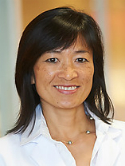Breast cancer risk in childhood cancer survivors without a history of chest radiotherapy: A report from the Childhood Cancer Survivor Study Journal Article
| Authors: | Henderson, T. O.; Moskowitz, C. S.; Chou, J. F.; Bradbury, A. R.; Neglia, J. P.; Dang, C. T.; Onel, K.; Friedman, D. N.; Bhatia, S.; Strong, L. C.; Stovall, M.; Kenney, L. B.; Barnea, D.; Lorenzi, E.; Hammond, S.; Leisenring, W. M.; Robison, L. L.; Armstrong, G. T.; Diller, L. R.; Oeffinger, K. C. |
| Article Title: | Breast cancer risk in childhood cancer survivors without a history of chest radiotherapy: A report from the Childhood Cancer Survivor Study |
| Abstract: | Purpose: Little is known about the breast cancer risk among childhood cancer survivors who did not receive chest radiotherapy. We sought to determine the magnitude of risk and associated risk factors for breast cancer among these women. Patients and Methods: We evaluated cumulative breast cancer risk in 3,768 female childhood cancer survivors without a history of chest radiotherapy who were participants in the Childhood Cancer Survivor Study. Results: With median follow up of 25.5 years (range, 8 to 39 years), 47 women developed breast cancer at a median age of 38.0 years (range, 22 to 47 years) and median of 24.0 years (range, 10 to 34 years) from primary cancer to breast cancer. A four-fold increased breast cancer risk (standardized incidence ratio [SIR] = 4.0; 95% CI, 3.0 to 5.3) was observed when compared with the general population. Risk was highest among sarcoma and leukemia survivors (SIR = 5.3; 95% CI, 3.6 to 7.8 and SIR = 4.1; 95% CI, 2.4 to 6.9, respectively). By the age of 45 years, the cumulative incidence of breast cancer in sarcoma and leukemia survivors was 5.8% (95% CI, 3.7 to 8.4) and 6.3% (95% CI, 3.0 to 11.3), respectively. No other primary cancer diagnosis was associated with an elevated risk. Alkylators and anthracyclines were associated with an increased breast cancer risk in a dose-dependent manner (P values from test for trend were both < .01). Conclusions: Women not exposed to chest radiotherapy who survive childhood sarcoma or leukemia have an increased risk of breast cancer at a young age. The data suggest high-dose alkylator and anthra-cycline chemotherapy increase the risk of breast cancer. This may suggest a possible underlying gene-environment interaction that warrants further study. © 2015 by American Society of Clinical Oncology. |
| Journal Title: | Journal of Clinical Oncology |
| Volume: | 34 |
| Issue: | 9 |
| ISSN: | 0732-183X |
| Publisher: | American Society of Clinical Oncology |
| Date Published: | 2016-03-20 |
| Start Page: | 910 |
| End Page: | 918 |
| Language: | English |
| DOI: | 10.1200/jco.2015.62.3314 |
| PROVIDER: | scopus |
| PUBMED: | 26700127 |
| PMCID: | PMC4871997 |
| DOI/URL: | |
| Notes: | Article -- Export Date: 2 May 2016 -- Source: Scopus |
Altmetric
Citation Impact
BMJ Impact Analytics
Related MSK Work









